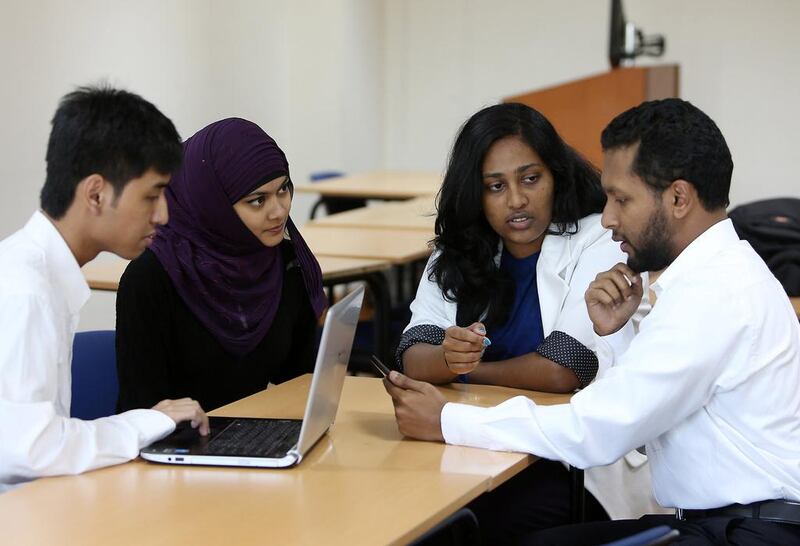DUBAI // A team of computer science students has devised a fully interactive learning app to enable children to receive feedback on progress with their reading and mathematics skills.
Abdush Shakoor, 22, Nilufa Hoque, 22, Fauzan Sudradjat, 22 and Lorain Manoj, 20, from the University of Wollongong Dubai set about making a tool that could either be used in the classroom to support the curriculum or at home, with the help of the Gems Wellington School in Silicon Oasis.
Ms Hoque explained how the app, which had six different activities in maths and English, differed to what was on offer.
“What makes this unique is that it uses speech recognition,” she said, adding that the current range of games can only hear full words, not phonetics that help children to learn the alphabet.
The students improved on this by combining not only voice recognition that picks up words, but audio fingerprinting, a more advanced form of sound recognition to go through individual letters.
“This made it a lot more complicated for the students to develop as it has to be very accurate as they needed a very large database sample which they got from the school,” Dr Zeenath Khan, the students’ supervisor, said.
Miss Manoj said another feature that set the app apart was its ability to record and track progress. “This we found is so important for teachers, who have to do this manually for every single pupil otherwise. The feedback on this feature was very positive,” she said.
“Teachers can easily manage the levels for the week and progression is only as much as the curriculum dictates,” said Mr Shakoor.
“Teachers can select which letters they are learning that week so that’s only what the children see at any time. They can monitor the level so it matches the curriculum,” said Ms Manoj.
The development process involved a lot of work with children at the Gems school, said Dr Khan.
“The students have done a lot of back-and-forth with the children at the school to do this. Yes, there are online games but they’re static. Children just click and get told what the sound is, but there’s no feedback and checking in this interactive way.”
She said teachers were enthusiastic about a system for recording progress. “It’s really a long manual job for them otherwise,” said Dr Khan.
“This app does that as and when the child uses the software. So it’s a constant check and they love that.
“Children are technology natives now,” she said. “Whether it’s using smart boards or tablets, it’s something that will make it interesting for them instead of a teacher always telling them about this. It will enhance the learning experience.”
mswan@thenational.ae






